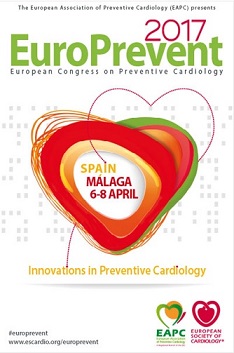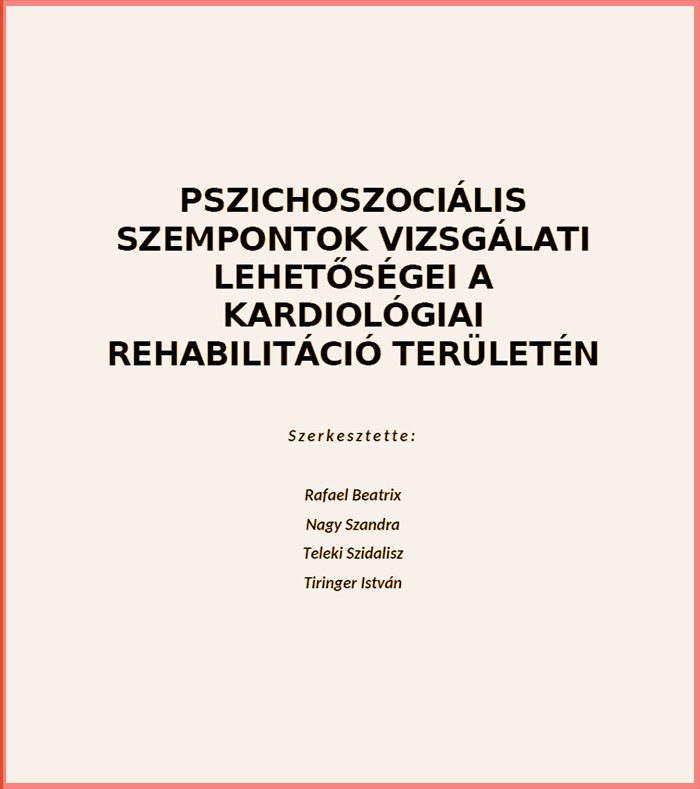Hírek
EuroPrevent 2017
2017.05.29

Vital exhaustion predicts the progression of myocardial infarction – a 2-year follow-up study
Beatrix Rafael1, Attila Simon2, Péter Kovács3, Piroska Balog4
1. Institute of Psychology University of Szeged; Medical Rehabilitation and Physical Medicine Department University of Szeged; Special Hospital of Chest Illnesses, Deszk
2. Honorary Associate Professor, State Hospital for Cardiology, Balatonfüred
3. Associate professor, Faculty of Economic Sciences, University of Szeged
4. Senior lecturer, Semmelweis University Faculty of Medicine, Institute of Behavioral Sciences, Budapest
Background: It is known that cardiovascular disease, especially myocardial infarction (MI), is the leading cause of death both among men and women all over the world. There is growing evidence that besides important behavioural and somatic factors psychological factors influence the development and prognosis of myocardial infarction. Some researchers suggest that mortality and other long-term consequences of MI might be predicted by psychological conditions during hospitalization.
Purpose: We proposed to examine psychological risk factors (depression, anxiety, vital exhaustion, sleep disturbances) and somatic factors (left ventricular ejection fraction, Metabolic Equivalents /METs/ achieved during exercise test, number of diseased vessels, diabetes) in patients who were admitted to phase II residential cardiac rehabilitation programme following an acute myocardial infarction. Our aims were to determine the impact of above mentioned psychological risk factors and somatic factors on the occurrence of new cardiac events and mortality after two years following MI.
Methods: In patients (N=142, 99 men, mean age: 56.34+ 10.15 years) the level of depression (Shortened Beck Depression Inventory), anxiety (Spielberger State-Trate Anxiety Inventory), vital exhaustion (Shortened Maastricht Vital Exhaustion Questionnaire) and sleep disturbances (Athens Insomnia Scale) were assessed during the hospitalization after MI. Left ventricular ejection fraction, Metabolic Equivalents (METs), number of diseased vessels and diabetes were retrieved from medical records. The main outcomes were hospitalization because of cardiac event (angina pectoris, arrhythmia, myocardial infarction, percutaneous coronary angioplasty, bypass surgery, survived cardiac arrest) and all-cause mortality during two years.


